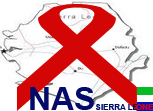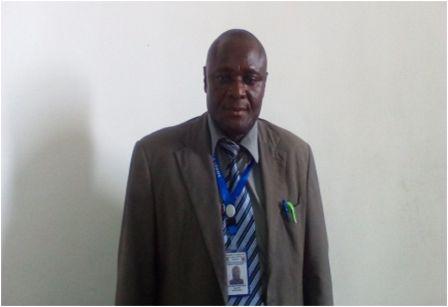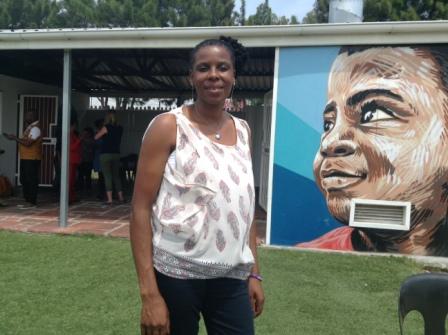The fight against HIV/AIDS; how far has Sierra Leone gone?
Sections of this article were published months back but since I want to also look at the fight against AIDS and the impact made so far, I went into my archives and drew them back. The youthful population of a country is the most unmanageable group to deal with when it comes to the fight against HIV/AIDS They often would find it difficult to accept that HIV/AIDS is real.
This has more often than not been the case because, when one takes a look at what it entails to prevent the disease, it becomes a truism that, the youths will find it difficult to comply with some of these preventive methods. But the reality is that, the disease is real and efforts must be embarked upon to prevent, minimize or eradicate it.
The origin of AIDS and HIV has puzzled scientists ever since the disease first came to light in the early 1980s. For over twenty years it has been the subject of fierce debate and the cause of countless arguments, with everything from a promiscuous flight attendant to a suspect vaccine programme being blamed.
Investigations conducted indicate that the first recognized cases of AIDS occurred in the USA in the early1980s. A number of gay men in New York and California suddenly began to develop rare opportunistic infections and cancers that seemed stubbornly resistant to any treatment. At that time, the name AIDS was not yet known, but it quickly became obvious that all the men were suffering from a common syndrome. The discovery of HIV, the Human Immunodeficiency Virus, was made soon after. Like all viruses of this type, HIV attacks the immune system.
There is now conclusive evidence that HIV originated in Africa. A 10-year study completed in 2005 found a strain of Simian Immunodeficiency Virus (SIV) in a number of chimpanzee colonies in south-east Cameroon that was a viral ancestor of the HIV-1 that causes AIDS in humans. It was in Kinshasa in the 1970s that the first epidemic of HIV/AIDS is believed to have occurred.
South Africa is currently experiencing one of the most severe AIDS epidemics in the world. At the end of 2007, there were approximately 5.7 million people living with HIV in South Africa, and almost 1,000 AIDS deaths occurring every day
For persons living with HIV, not only does it impact on their lives, but also those of their families, friends and wider communities. Generally, when the use of condom is spoken of, it becomes a problem too, especially among traditional settings and barely two years ago, was condom use relatively low at 8%. The use of condom is seen as a taboo among most of our traditional settings and the failure by many to adhere to the use of condom has also led to an increase in the prevalence of the disease. By 2005 however, condom use increased from a percentage of 8 to 37.3.
Prostitution also has it own side to the story. Over the years, the practice has almost but illegally become societal norm, especially following the end to our civil carnage.  A 2004 National Aids Secretariat and 2007 Behavioral Surveillance Surveys indicated that sex in exchange of money increased from 6.5 in 2004 to 7.5% in 2007. The survey proved that about 17% of the respondents had multiple sex partners in 2004 compared to about just 19% in 2007.Â
A 2005 population-based prevalence survey of the disease estimated a prevalence of 1.5% with 47% new infection and in 2004, a sentinel survey of antenatal clinics estimated national prevalence of the disease at 2.9%
Last month (September) I had an interview with the Director for the National HIV/AIDS Secretariat in Sierra Leone to know what efforts we have kept talking in the fight against HIV/AIDS. He is Dr Brima Kargbo and he told me, Sierra Leone has made tremendous progress in the fight against HIV/AIDS in recent years. The fight against HIV/AIDS in Sierra Leone has been in progress since the Secretariat was established few years ago by the Sierra Leone government.
According to Dr Kargbo,  they have been able to stabilize the epidemic due to the support they have been getting from government and the donor community and revealed that at present only 1.49% of the country’s population has HIV/AIDS. A 2008 Sierra Leone Demographic and Health Survey indicates that, 1.7% of women and 1.2% of men are HIV-positive and that HIV prevalence is higher among women than men in urban areas than in rural areas.
The survey indicates that women become infected at younger ages than men and that prevalence for both women and men increases with age until it peaks at age 30-34 for women (2.4%) and at age 45-49 for men (2.1%). The survey shows that there is 0.8% prevalence of HIV in the southern region, 1.2% in the northern region, 1.4% in the east and 2.9% in the Western Area.
Speaking on the strides the country has made in recent time, Dr Kargbo stated that 84.3% of people survive a year after treatment and that 91% of children born by parents affected are negative. Speaking further, Dr Brima Kargbo said, ‘there has been an increase in the number of treatment centers from 5 in 2005 to 111 at present and that “a total of 5,714 people are currently on treatment for the epidemic ‘The use of condom has also increased tremendously…it has increased from 13% to 29% and this is an encouraging thing” Dr Kargbo said.
Asked to comment on the knowledge of HIV prevention among people, he said less than half of  women know each of the three major methods of preventing HIV transmission and that men are slightly more knowledgeable, with more than two-thirds of men knowing that limiting sex to one uninfected partner reduces the risk of getting HIV.
The success of most state institutions often depends on the political will from the political class. According to Dr Kargbo, “the political will from the office of the president within the last two years has been robust’. He said the President Dr Ernest Koroma has attended several functions on HIV/AID. ‘Even the financial support has been encouraging as it has been increased from government counterpart”.
The HIV/AIDS Secretariat like most institutions has been faced with several challenges but according to the Director, “funding is not the most critical challenge, but that of changing the perception of people on the existence of the epidemic…” He said people still have the perception that the disease is not in existence and that this has, largely been as a result of cultural and religious beliefs.
The disease itself is curable and that is at least good news for people living with the disease. First and foremost, the use of condoms should not be discarded when we begin to explore possible ways of either preventing or reducing the spread of the disease. It is true that there is traditional and to an extent religious myth that has been tied to the issue of condom use, but that should not be allowed to override the interest of saving lives. Condom use is paramount in whatever shape or form one may want to look at it.Â
But when the use of condom is ignored either because of traditional or religious myth, then we begin to talk of safe blood transfusion. One of the several ways the disease is been transmitted is by blood transfusion.
It is also dedicated to those who are aware of the fact that the disease is real but have, at the same time, not used that knowledge to discriminate those living with the disease, as that itself can lead to early death for an HIV/AIDS victim . As you read this piece, please remember that the disease is real but it can be cured, so do something to save life by doing your part towards preventing, or reducing it.
AIDS IS REAL, DO SOMETHING TO STOP IT. This piece is dedicated to all those institutions working towards the prevention of AHIV/AIDS in Sierra Leone like the Shepherd’s Hospice, the National HIV Secretariat and the Ministry of Health and Sanitation.
Stay with Sierra Express Media, for your trusted place in news!
© 2009, https:. All rights reserved.







